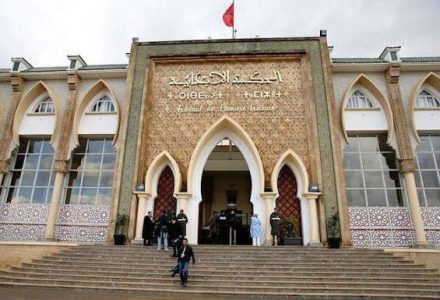
Morocco’s template for dealing with terrorism
Africa has replaced the Middle East as the epicenter of global terrorist threats, according to a recent analysis by the United Nations Office for Counter Terrorism. The area of greatest concern is the Sahel and the broader region of West Africa, where terrorism and political instability are on a sharp upward trend.
Morocco, which sees itself as a bulwark against extremism and a reliable partner to the U.S. and other European countries in west Africa and the Sahel, has pursued a multidimensional approach to counterterrorism.
The Kingdom’s counter-terror strategy embodies a “whole of government” and a “whole of society” approach. This combines socioeconomic, religious, and legal strands, into a coherent fabric that is both strong and flexible.
The genesis of many aspects of the strategy were the 2003 Casablanca terror attacks. The atrocity of these attacks underscored that the threat of extremism and Al Qaeda had reached Morocco. It also brought to an abrupt end to the assumption that the Kingdom’s religious culture, based on an open and tolerant approach to Sunni Islam, would protect it from the terror scourge afflicting the Arab Middle East.
The attacks prompted a series of legislative reforms which overhauled and strengthened the country’s legal counterterrorism framework. A new law expanded the definition of terrorism to include incitement. It also introduced sentencing for active participation in terrorist-related activities.
Morocco also recognized the importance of robust socioeconomic development policies to forestall the appeal of terrorist groups to vulnerable populations. In launching the National Initiative for Human Development (INDH), the Kingdom committed to supporting and protecting vulnerable populations by improving their educational and socio-economic conditions and opportunities.
To combat Islamic extremism from grassroots on a fundamental level, Morocco accelerated efforts, begun in the 1990s, to promulgate a tolerant vision of Islam. One of the most visible examples of this policy was the creation of the Mohammed VI Institute for the Training of Imams, Morchidines and Morchidates.
Opened in the capital Rabat in 2015, the Institute includes the training of women as religious instructors and preachers, reflecting the progressive view of King Mohammed VI that women are an essential part of the solution to religious extremism. The United Nations Office for Counter Terrorism has lauded Morocco’s policy of integrating women in the countering and prevention of violent extremism, calling it a best practice in the Arab and wider world.
On an institutional level, Morocco renovated its security apparatus. The Central Bureau of Judicial Investigations (BCIJ) was created as an analogue to the F.B.I. in the United States. Operating under the supervision of the General Prosecutor, the BCIJ coordinates all the various arms of Morocco’s national security and police agencies.
More cooperation with the USA is also evident. Recently, the Director General of National Security and Territorial Surveillance, Abdellatif Hammouchi met with US National Intelligence Director Avril Haines in Rabat. That meeting followed similar meetings Hammouchi had in Washington DC, in June, with CIA Director William Burns and FBI Director Christopher Wray.
Recognizing that terrorism and extremism are as likely to come from outside its borders, Morocco has also played an active role in multilateral antiterrorist efforts. The country is currently co-chair of the Global Counterterrorism Forum (GCTF) and is an active participant in the Global Coalition to Defeat ISIS.
As part of the GCTF, Morocco has engaged with the U.S. in conducting successful initiatives to address foreign terrorists and enhance border security. The two countries are also co-chairs of the Africa Focus Group, which addresses the challenges of terrorism on the African continent, within the framework of the Global Coalition to defeat ISIS.
An area of particular concern has been the flow of Moroccan nationals going abroad to join the Islamic States and other jihadist groups. Ongoing efforts to reduce the number of Moroccans joining extremist groups outside the country, have been combined with efforts to reduce the threat of those returnees.
Morocco’s multidimensional counter-terrorism policies have played a key role in the country’s stability and relative safety in the region. According to the United Nations Office for Counter Terrorism, over the last 20 years, the Kingdom has dismantled more than 200 terrorist cells and prevented more than 300 terrorist attacks.
With the success of its “whole of society” counter-terrorism strategy, other countries in the region and in the Middle East have been looking at Morocco’s experience and drawing upon its expertise to keep populations safe from the threat of terrorism.
Source: Thecipherbrief





